|
I've gotten a surprising number already. Some of them quite moving. I'm pretty happy about this. May need a section of this website that captures several of them. (Of course, I will always get permission of the writer to post.) Here's an example:
0 Comments
For most of my career as a professional organizer with the Industrial Areas Foundation (IAF) my home base was Oracle, AZ. There was a big upside to this, personally and vocationally, but severe stresses along the way.
I was logging 30,000 highway miles a year and several times that in the air. I was fine with it for many years, even energized - but as time passed, the rigors of the lifestyle took a serious toll.
Nobody knows where the Roe v. Wade decision will lead in American public life. Which "side" will be more energized, likely to vote, and the rest of it. But one thing is for sure: now in play is the role of law enforcement in wresting control of women's bodies from pregnant women themselves. The basic takeaway from the Supreme Court decision is that state officials know better than pregnant women themselves how to proceed with the governance of their own bodies.
Now state level voters and politicians they choose will make the call. In Arizona, this means a gaggle of nut jobs mixed in with normals will fight it out - probably much like they've parsed the winner of Biden v. Trump. The new wrinkle is a determination as to what "God wants". Call it the audacity of idolatry; that is, making claims to know and certify the unknowable, draw a conclusion therefrom and run it up the flagpole of righteous certainty. This wouldn't matter so much if the iron fist of law enforcement wasn't the grand prize - the ultimate decider in the fraught circumstances that matter most to pregnant women. At bottom, power relationships backed by state sanctioned threat/force move front and center once again. Two profanity laden verbal assaults separated by 55 years bear remarkable similarities. The first one I include in my book - Sometimes David Wins - about an incident outside a Frisch's Big Boy Restaurant in Richmond, Indiana. The second just happened next to the Oracle Post Office, which I described in Going so Local I'm in the Weeds. Both hit me out of the blue. The commonalities are eerie. They both happened in times of extreme social/political division, with passions running high. They're both colored by suspicions (mine) about the impartiality of possible law enforcement's response. They both carried overtones of violent threat above and beyond the assaultive language (ripping the windshield wiper off my car in one case; taking a vid of me and my license plate in the other, with it's implied "we know who you are and where you live"). Given the gun culture in both places, and the hostility of attitude on full public display in the confrontations, I am certain that both of the principals traveled with firearms in their vehicles.
Marge, Heather and Day Creamer schooled me in what was an emergent force in American political and social life - Women's Liberation. From Marge I got an intimate education in how it all fit together. In my life the transformation was profound and irreparable. A door I passed through that I couldn't back out of and didn't want to. I look back on it as a gift of great and lasting value.
Heather's critique of the Industrial Areas Foundation (IAF), where she trained for a time before striking out on her own with the Midwest Academy, was trenchant - perhaps deeper than any other delivered over the years. Not bitter, just centered, sharp-eyed and relentless. Of course, it was focused on male patterned acculturation and its attendant perversions. You know what I mean; unwanted sexual allusions and innuendos, assumptions about qualities of leaders, and pretense to never showing weakness, that kind of thing. Alinsky was there with it, Chambers too, and no doubt many of the rest of us. So here we are again. Fifty years later with many of the same battles still raging, the losses and wins mounting up, no final resolution in sight. And it comes down to the same challenges posed in 1969. As Joe Hill put it so memorably: "Don't mourn, organize." Or as Heather Booth might have put it even better as imagined in my mind's eye: "Be tender with each other have a cry but when you're finished with that stand up and fight back." I'm not looking for controversy, but sometimes it just happens. I noticed political signs by some extremist candidates posted on property Kaz and I own in the heart of Oracle, so I removed them-- careful to not deface any, just relocating them nearby on the ground. So I'm doing due diligence on a Wendy Rogers sign when a guy in a pickup hangs a U and starts in my direction. He's giving me the middle finger, so I roll down my window as he approaches, yelling in my direction: "You fucking piece of shit". As if I didn't hear him, he repeated the same message at least three times. Then he informs me he can put signs anywhere he "fucking well wants". "Not on our property," I say. So he tells me what he thinks I am again - "a worthless piece of shit" - while pulling out his phone, apparently making a vid for his tribe and taking pics of me and my license plate.
I didn't write about Rusty Bowers in my book because I didn't know him well enough. Just occasionally rubbing shoulders and observing him from afar. But I developed a strong sense of who he is from my limited experience. He reminds me of a local LDS bishop I got to know very well in Oracle - Glen Johnson. Glen was a straight-up guy who would run to fire if there was saving to be done. In fact, he did just that one morning on the way to the Aravaipa Campus of Central Arizona College, where Glen taught building trades. A vehicle had flipped over and looked about to explode, with two elderly occupants trapped in the front seat. He, with me tagging along, got them out.
Glen was bulwark solid - a deeply committed Mormon who acted on his faith commitments. Bowers, I think, the same. A straight shooter. The public can be assured that whatever he said came straight from his heart - God's honest truth. But pretty weird after all this that he would still back Trump v. Biden (if reportage is accurate). I never thought promoting a book could be fun and satisfying, but thanks to buyers and readers like Lorena Candelaria it's turning out that way. Lorena has both an inspiring personal story and a family history in western mining towns that dates back through Christmas, AZ and Silver City, NM (The Salt of the Earth). That she reports liking it builds my confidence that the book was worth the time and effort I put into writing it.
Kaz and I have been involved in the local political scene since we moved here. By necessity really. It started with the politics of toxic waste dumping above the aquifer that sources Oracle's water. Imagine our horror when we found out that the University of Arizona was carting radioactive and chemical waste to a disposal site a couple miles away from the house we bought after moving from Queens. To make matters worse the University was hiding what it was doing from Pinal County officials as well as residents of the region. It was a humdinger of a wake-up call. So we never went back to political sleep.
So I just got a box of ten books from Acta Publications. Yes, it feels good to get into print like this. A big part for me is the public recognition of some remarkable leaders who people the pages of David Sometimes Wins. Look left and you'll find many of them in the image collage. Order here: actapublications.com/sometimes-david-wins/
I pulled this pic from an old file of memorabilia from my Swarthmore, PA upbringing. Guess what stands out? For me, at least, race and death. The one black individual who was a stalwart teammate lived in a tiny "ghetto" on the edge of town I rarely visited. My two best friends - athletes both - passed away, one just a month or so ago. I know when they died, but I'm not sure if Russ Jones, number 44, is dead or alive. Certainly alive and well in Swarthmore were race matters however you cut them because race mattered hugely, as did matters pertaining to race. The title of Cornel West's book Race Matters captures it both ways - perfectly. I learned about race in my home - two black women in particular come to mind. Both were powerful in their own way and taught me a thing or two about toughness as they navigated their responsibilities under the employ of Rita Pierson. Then there was the basketball court. We were regularly beaten by the all black team from rival Darby as our ninth grade coach (Dick Bernhardt) relentlessly debunked my evasions and excuses. The whole race scene was topped off by events at the Swarthmore Swim Club. That's where my brother and I spent most of our summer days until the club board flipped out over concerns that the new black kid in town, Reggie Harvey, might piss in the pool. Liberal white preachers didn't do well with this one. My parents and the Swarthmore Meeting did - by boycotting the club and lining up behind the Harvey family.
He could have gone on and on, given his status. Instead, he vacated his position and served as a volunteer to counsel students on future job prospects into his early 70s. His primary reason for making the retirement move was opening the chairmanship to the next generation of professorial talent, almost all of whom he had recruited to Swarthmore over the years.
My father was diagnosed with an Alzheimers variant at age 75 (my age now). That means he and Rita had 8 good years free of grinding daily workday responsibilities, before bit by bit he began to lose his mind. My plan was to retire at 67 the same way dad did. The reasons are pretty obvious, I guess. The irony of sitting in a Congregational/UCC church memorializing the life of a labor leader Don Shelton wasn't lost on me. My grandfather, Silas Gilbert Pierson, was a long term member of a Congregational congregation--Plymouth--in Denver who embraced Rockefeller's vituperative enmity for labor organizing in his company. So I doubt any labor leaders of his era were fondly remembered in his church after their passing. Of course, I can't be sure, but I'd bet a bundle on it.
Don Shelton passed away several months ago. His daughter Diane invited me to his memorial service at Casas Adobes Congregational Church UCC. I was glad to join with others to remember and celebrate his life. Don figures prominently in one of the chapters in David Sometimes Wins. I got to know him a bit in the writing of it.
I suppose one might say I was lucky to connect with the guy when I did, around time he was diagnosed with a terminal cancer. But in my mind luck doesn't explain connections made between fellow travelers on the social justice road who meet up along the way.
If you look carefully at Linda Victoria's brilliant collage to the left you'll spot this priest in more than one place. Msgr Arsenio Carrillo was a towering figure in the life of Tucson families and continues as a prime inspiration for the future. I write about him in Sometimes David Wins. Book writing encourages a deeper reflection about who really matters in a life. Msgr Carrillo was one of those - not just for me, but for countless others.
My uncle Orrin was an amazing character. He died a few years before my brother John and I were born, but he lived on in stories told about him and letters written by him. And he wrote a regular column for the local newspaper that his co-workers turned into a book published posthumously. I know for sure we'd have hit it off, which makes his untimely passing from polio (before the Salk vaccine was widely available) painful all these many decades later. It's almost spooky how a deceased relative - never met in person - can exercise an outsized impact on a life - mine.
If I knew what was really involved in writing and publishing a book from the start, I might have shit-canned the idea and stuck to taking pictures, authoring the occasional article and tending my real and metaphorical garden in Oracle, AZ. But the book thing got under my skin and metastasized to the point that the only way to deal with it was to write and publish. Now I'm glad I did. I think it turned out pretty good. For those of you who read it, I hope you think so too.
Early on, my friend and former colleague, Perry Perkins, suggested I read Mary Karr's "The Art of Memoir". She teaches the subject at Syracuse and has written several books in the memoir genre herself. Mary, like Perry, is a good writer, has a great memory and tells great stories - nothing but the truth of course. Like Perry, she makes a good living doing what she loves (and may be expelling some personal demons in the process while helping others do the same). But the best thing for me about reading Karr was my dawning convincement that I didn't want to go that route. I liked the part about connecting personal and professional interests, telling good stories and integrating family history, but the memoir genre wouldn't have worked for me or my editor/publisher. I could easily have spent a year or more running up and down literary rabbit trails, likely ending in frustration, senility or death before any ink was spilled... No story better applies to our current situation than the David and Goliath drama as narrated in Hebrew Scripture. If Zelensky/Ukraine v. Putin/Russia isn't a classic in that regard, I don't know what is. The "Sometimes" in the title of my new book strips inevitability from the equation. The fact is David may very well not always win, which is why the subtitle, Organizing to Overcome "Fated Outcomes" hits the mark. So winning is conditional on David getting his shit together-- which he does in Scripture by taking off bulky armor and operating with tools of the shepherd trade, with which he is well practiced.
I think there's a hero in all of us waiting, like David, for the moment to burst out and go public. In part, that's what community organizing is all about. Doing something hard, against long odds, and suffering the slings and arrows in the process. I was raised, blessed and cursed, to "make a contribution". My parents never advocated a life focused on money-making for myself and my brother, John. They expected us to be gainfully employed but not consumed by avarice-- which to them seemed, while common enough, a slippery slope into worthlessness. |
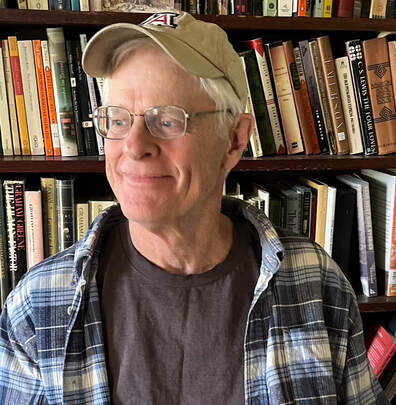
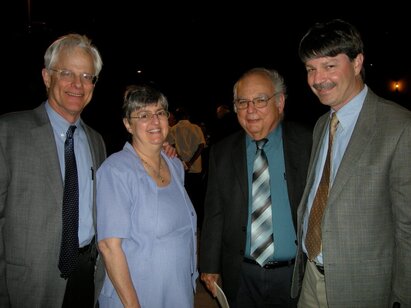
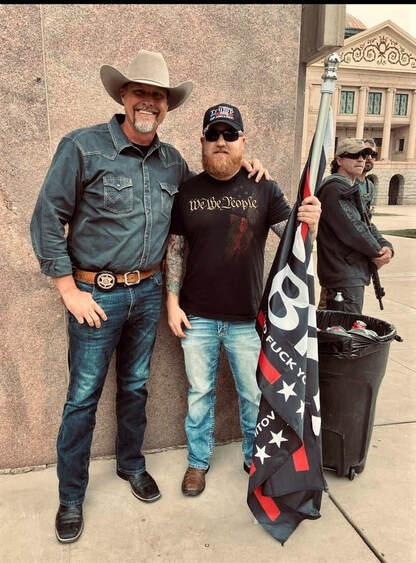
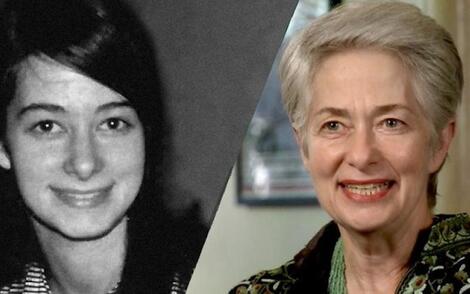
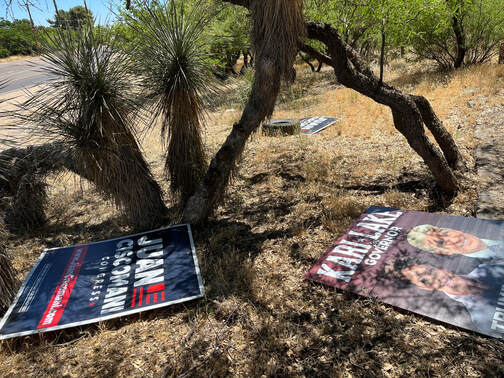
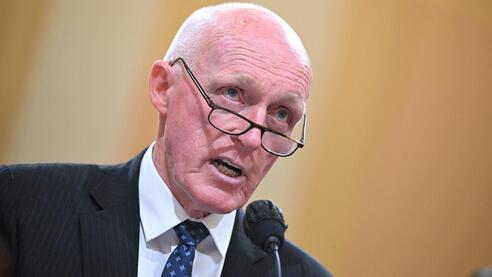
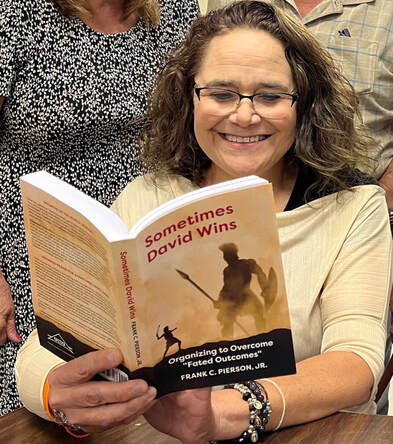
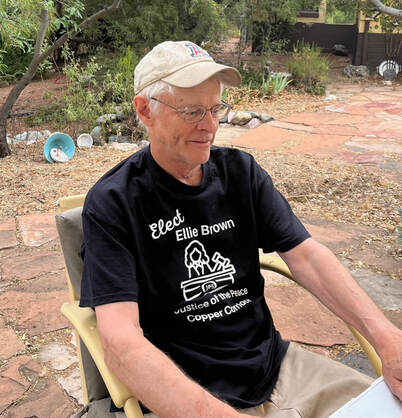
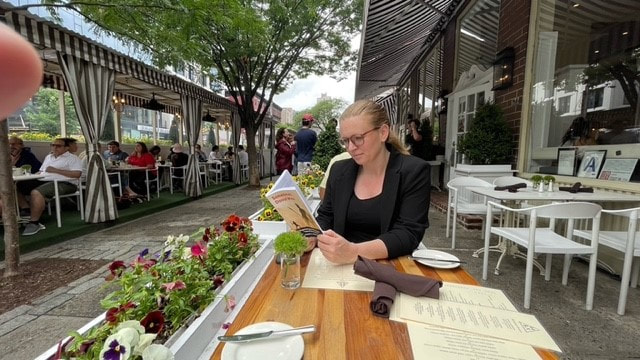
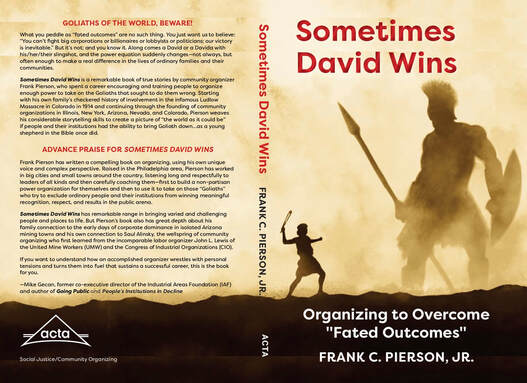
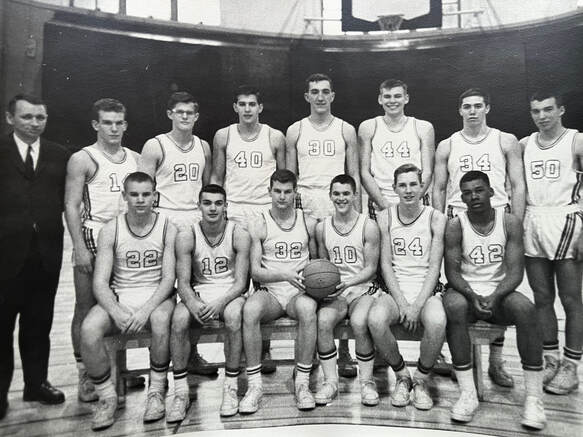
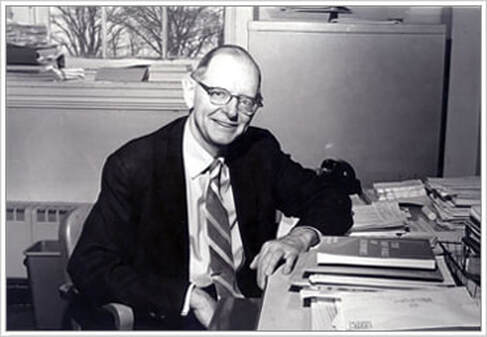
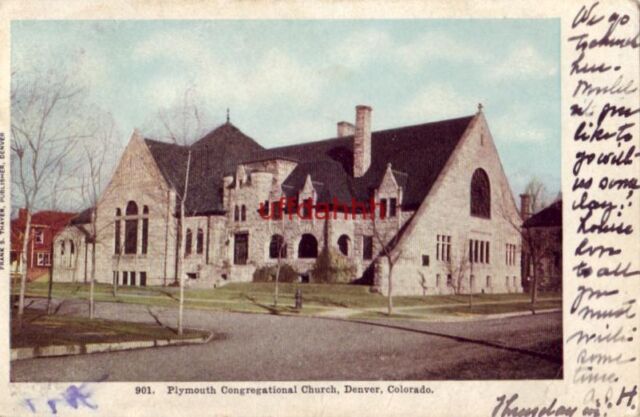
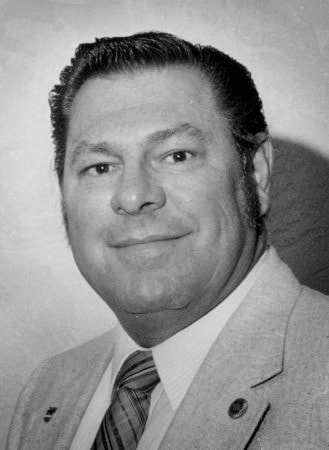
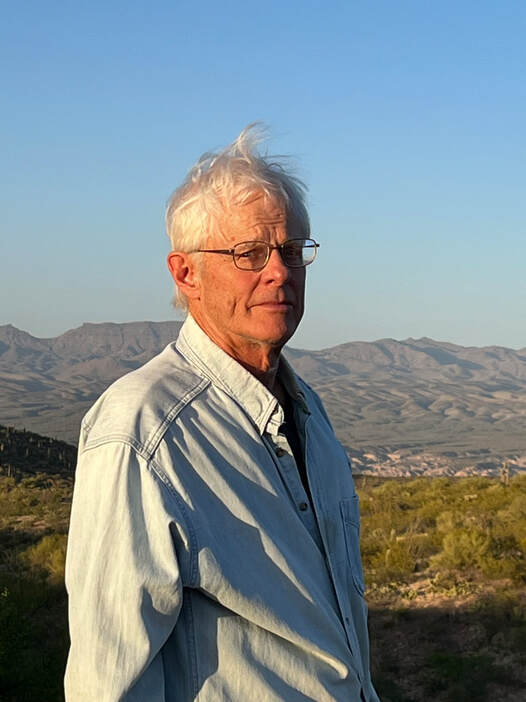
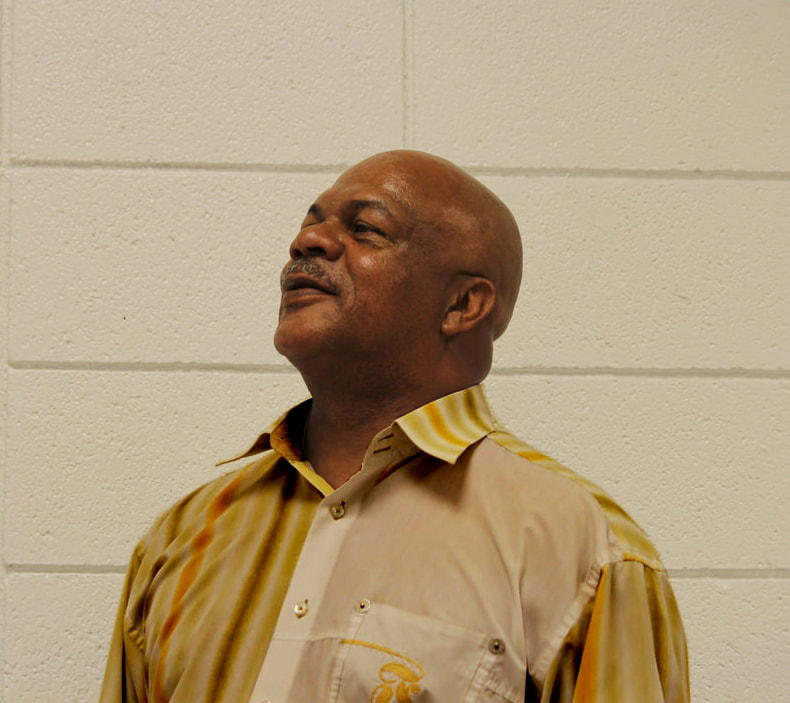
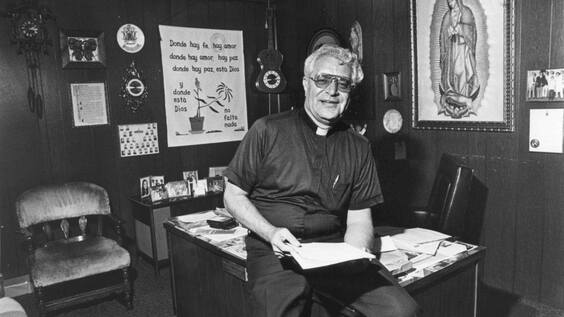
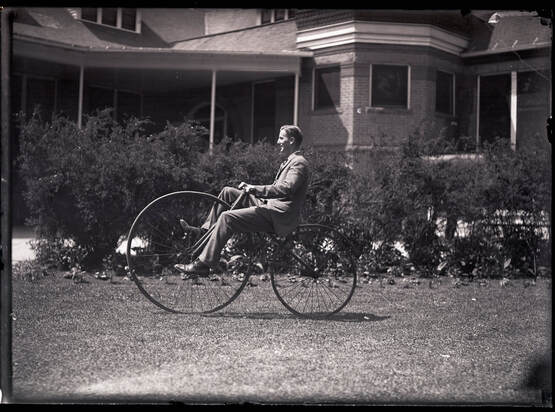
 RSS Feed
RSS Feed